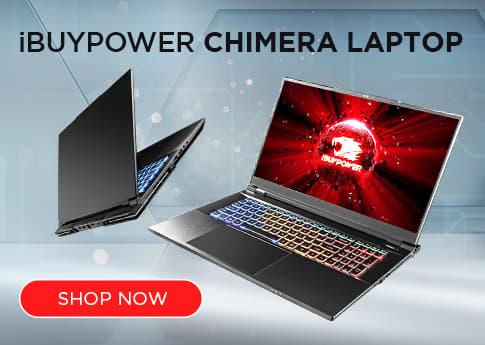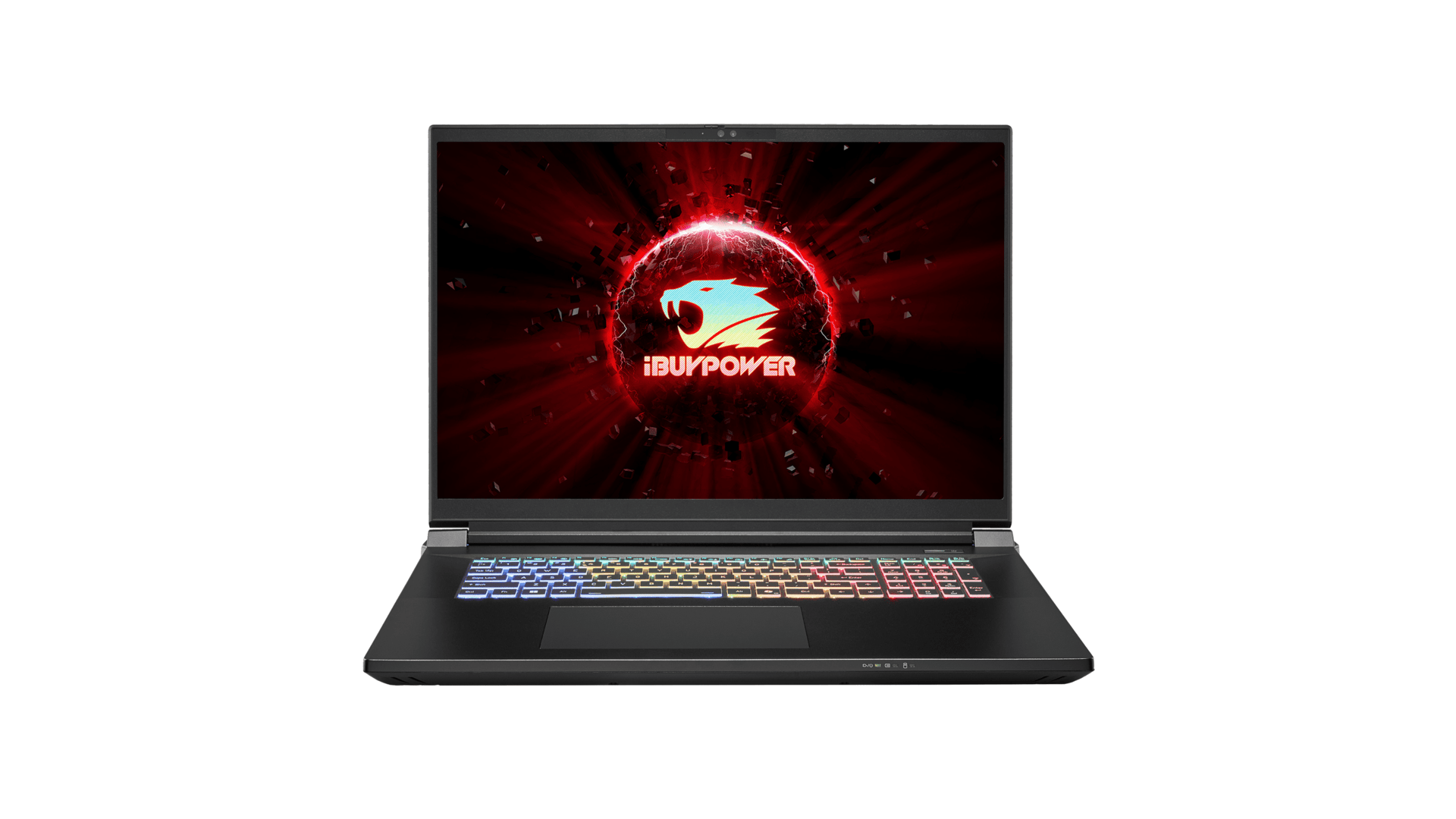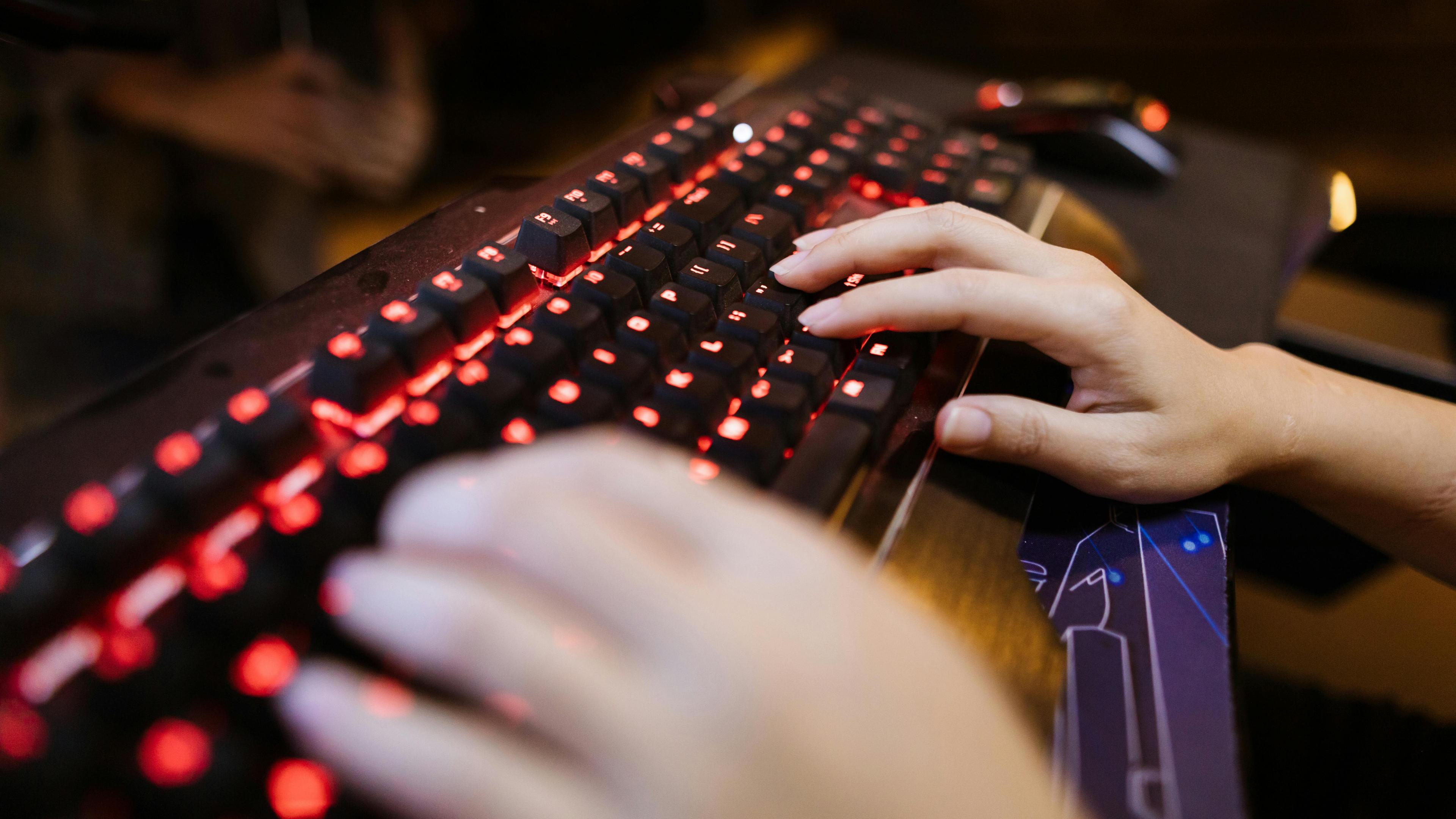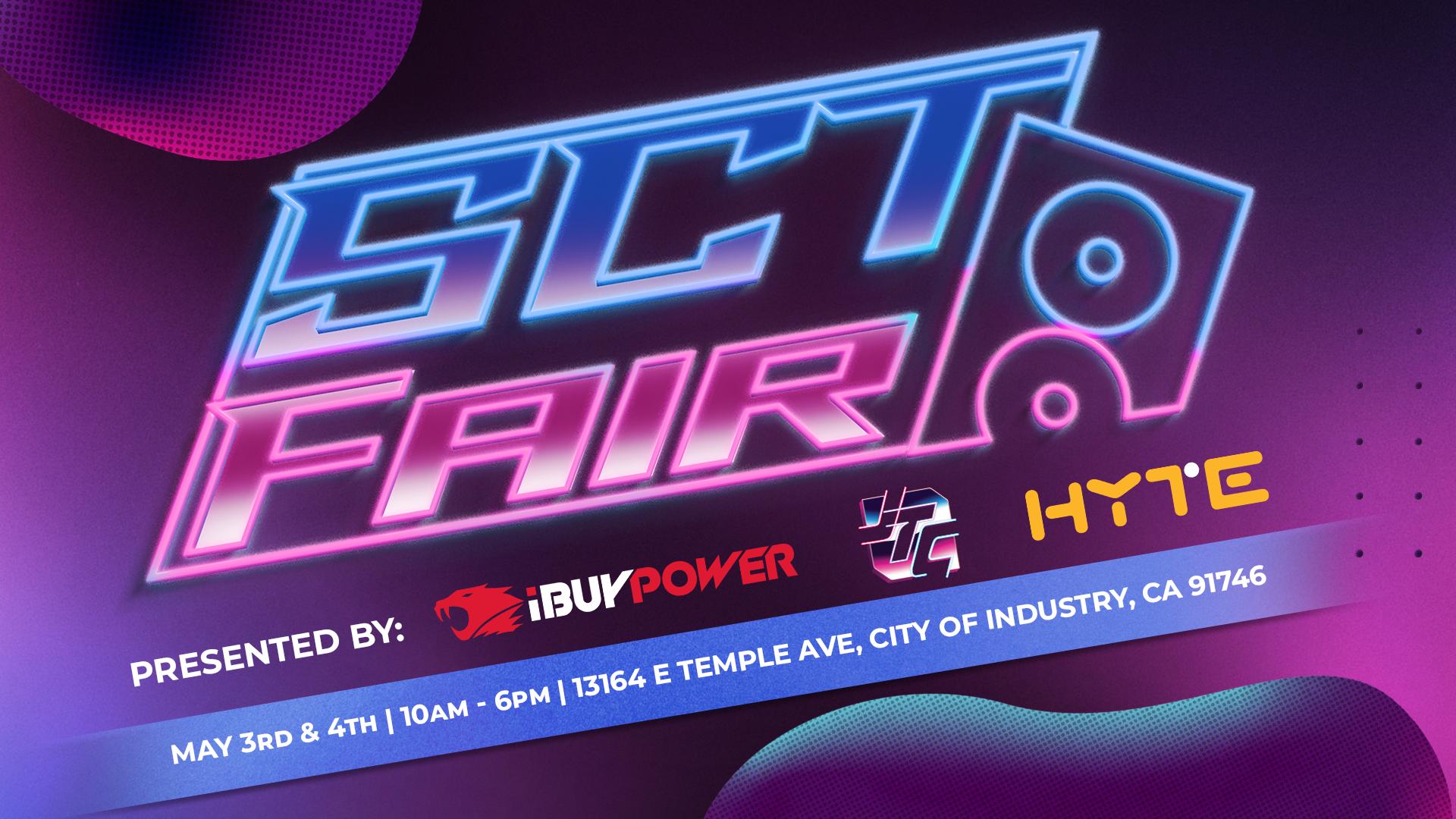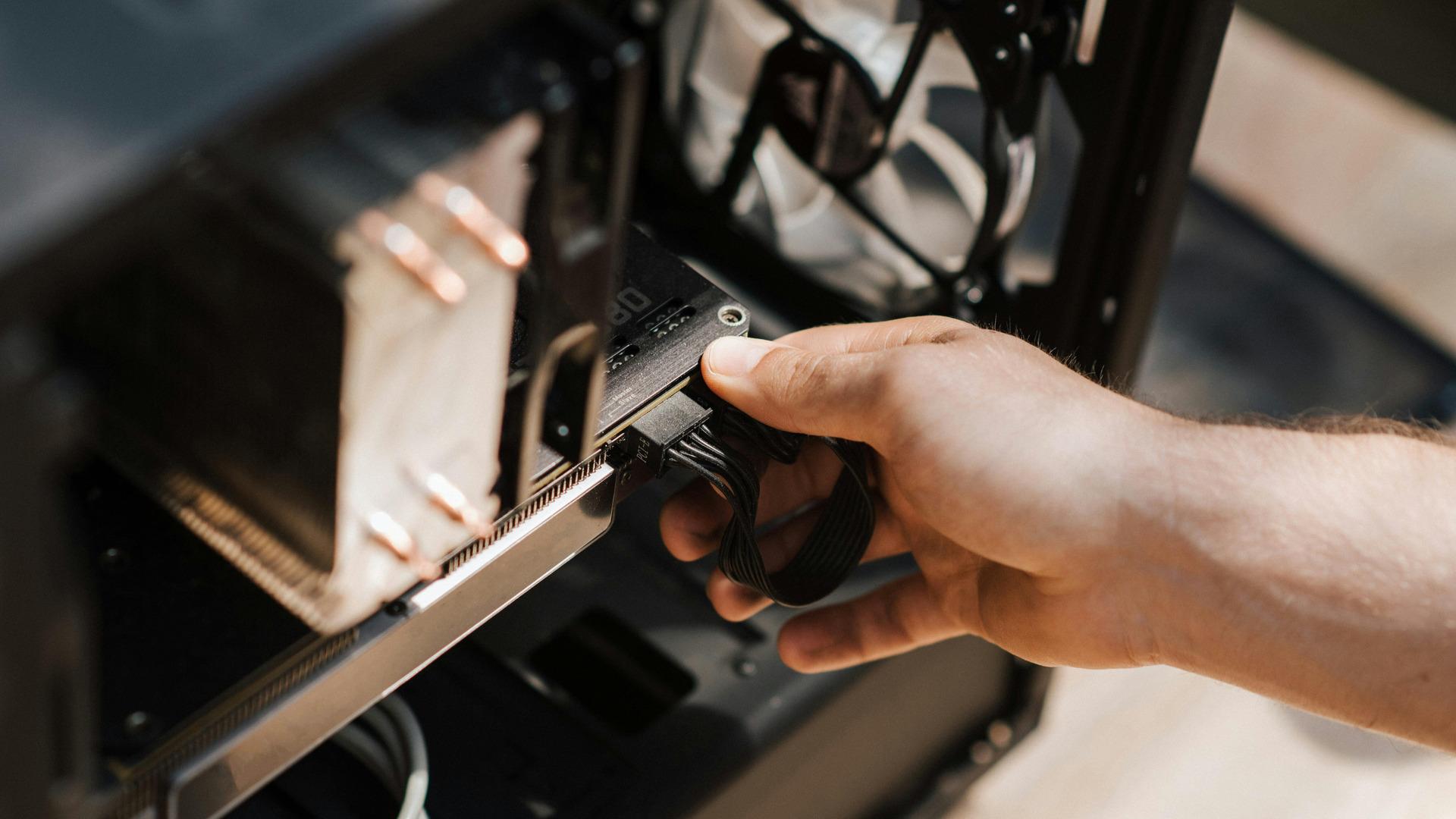Unlike a regular desktop, the portability of gaming laptops lets you immerse yourself in your favorite games, whether at the airport or on campus. However, with so many models available, the choices make it easy to feel overwhelmed.
This guide explores how to pick a gaming laptop by breaking down the most important factors to find a machine that delivers strong performance, fits your lifestyle, and offers real value for your investment.
How to Choose a Gaming Laptop
Choosing a gaming laptop can be daunting, with many specs, features, and price points. However, understanding your gaming needs will help you determine the most essential hardware to focus on during your search. Here is how to choose a gaming laptop that fits your needs, budget, and gaming style.
1. Understand Your Gaming Needs
Evaluating your gaming habits and performance requirements is one part of understanding what makes a gaming laptop good.
Casual gamers who enjoy indie or less demanding titles often rely on mid-range hardware, while competitive gamers and content creators will need more advanced specs.
The genres you play also influence your hardware needs. Open-world RPGs and AAA games require strong GPU and CPU power, whereas strategy games and esports titles benefit more from high frame rates and solid CPU performance.
Beyond specs, what makes a gaming laptop good also includes factors like:
Build quality
Warranty coverage
Customer support
Prioritizing quality components, brand reputation, and upgrade potential ensures the best laptop for your needs.
2. Essential Hardware
When choosing a gaming laptop, the internal hardware is the most critical factor influencing performance, longevity, and overall experience.
Below are the components to focus on when choosing a gaming laptop:
CPU (Central Processing Unit): This is the core component of any gaming laptop and is responsible for running software, managing system operations, and ensuring smooth performance during gaming, streaming, and multitasking. The key specs to consider include clock speed and core count. While single-core performance is crucial for gaming, multi-core performance benefits activities like streaming or video editing.
GPU (Graphics Processing Unit): The GPU works with the CPU to render on-screen graphics. While integrated GPUs can handle basic tasks, dedicated GPUs allow for high-performance gaming with significantly better results. Mid-range GPUs are suitable for casual 1080p gaming, and high-end options are better for those wanting top-tier performance and future-proofing.
RAM (Random Access Memory): RAM temporarily stores data for quick access by the CPU for better multitasking and responsiveness. While 16GB of RAM is sufficient for most modern games, upgrading to 32GB benefits users who stream, edit videos, or run multiple demanding applications simultaneously.
Storage (SSD vs. HDD): SSDs offer a major storage advantage over traditional hard disk HDDs. They use flash memory for much faster data access, dramatically reducing load times, speeding up system booting, and improving performance in data-heavy games. Most gaming laptops now have SSDs by default, with PCIe NVMe M.2 drives offering the fastest speeds. For optimal performance and storage space, a 512GB SSD is the recommended minimum, while 1TB or more is ideal for more extensive game libraries.
Prioritizing the specs that matter most to your gaming style and ensuring your system is future-proofed can help you get the perfect gaming laptop for your budget.
4. Display
Aside from the core components, the display is another important part of choosing a gaming laptop, as it determines how immersive and responsive your games feel. The main aspects of a monitor to focus on are:
Resolution: The standard resolution display is 1080p, which balances clarity and performance. You’ll need more powerful hardware for higher resolutions to maintain smooth frame rates and a sharp, clear image.
Refresh Rate: The higher the refresh rate, the better the motion flows on screen, with 60 Hz sufficient for casual gaming.
Panel Type: IPS panels offer vibrant colors and wide viewing angles, OLED panels deliver deep blacks and high contrast, and TN panels prioritize fast response times at the cost of color accuracy.
Screen size: Typical screen size is 13 to 17 inches, influencing both immersion and portability, with larger screens offering better visuals but adding bulk.
If you game primarily at home, an external monitor may enhance your setup, but a high-quality built-in screen is essential and should be matched with a capable CPU and GPU to realize its full potential.
5. Quality and Portability
When choosing a gaming laptop, build quality and portability are vital for users who travel or game in different locations. The chassis material impacts durability and heat management, with aluminum builds tending to be sturdier and offering better heat dissipation than plastic ones.
Size and weight also impact portability. Slimmer laptops are easier to carry but must balance performance and mobility. With modern laptops, though, even thinner ones deliver strong performance, thanks to advances in cooling technology.
Overall, a gaming laptop with solid build quality, smart design, and efficient cooling will offer better longevity and a more reliable experience.
6. Battery
Battery life is one of the main compromises with gaming laptops, as they are built for performance rather than all-day unplugged use. For full CPU and GPU performance, staying connected to a power source is essential, as battery mode often limits output to conserve energy. Although modern processors and GPUs have become more power-efficient, and features like Mux switches help extend battery life during lighter tasks, gaming on battery power alone remains impractical. Some models offer conveniences like fast charging, power-saving modes, and support for USB-C charging—useful for non-gaming tasks but not powerful enough for full gameplay. Despite ongoing improvements, battery life continues to lag behind that of productivity-focused laptops, making it important for buyers to set realistic expectations or consider alternative devices if portability and long battery life are priorities.
7. Keyboard
Another part of choosing a gaming laptop is the keyboard. While most laptops feature membrane keyboards for portability and affordability, gaming models may include mechanical-style switches that offer better tactile feedback and durability. For those who prefer the feel of true mechanical keys, connecting an external mechanical keyboard is a great option.
Many gaming laptops also feature customizable RGB lighting and programmable macro keys to personalize and streamline complex commands. Though touchpads have improved in precision, most gamers will benefit from a gaming mouse for more accurate control, customizable DPI settings, and additional buttons for in-game functions.
8. Ports
Connectivity affects a gaming laptop’s usability and future-proofing. A well-rounded selection of ports lets you connect essential peripherals like gaming mice, keyboards, headsets, webcams, and external drives.
Look for laptops with USB Type-A and Type-C ports and USB 3.0 or 3.1 for faster data transfer. Premium models may also include Thunderbolt™ 3 or 4, which supports high-speed data, external GPUs, and multiple high-resolution displays through one cable. For external display output, HDMI is standard, but DisplayPort and Thunderbolt connections have better support for higher resolutions and refresh rates.
What Laptop is Best for Gaming?
Choosing a gaming laptop comes down to balancing performance, display quality, build durability, and budget. Researching and comparing options will help ensure your new laptop delivers the performance and reliability you’re looking for.
At iBUYPOWER, we have the best gaming laptops for any budget, like our ASUS TUF F15 FX507ZC-ES53 Gaming Laptop. Make sure also to check out our latest laptop deals to get the best value for your setup. No matter what type of games you play or what your budget is, iBUYPOWER has a gaming laptop for your play style.

